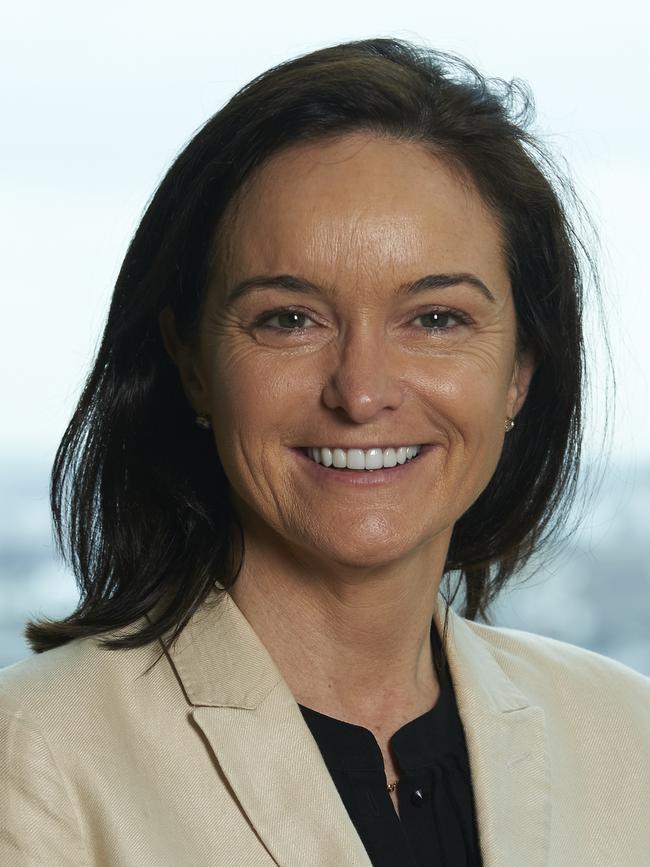Investors stash cash in managed accounts amid Ukraine turmoil: State Street Global Advisors
Historically used by the wealthy, managed accounts are increasingly becoming the main tool for financial clients to cope with market volatility.

Business
Don't miss out on the headlines from Business. Followed categories will be added to My News.
As Russia’s invasion of Ukraine and the West’s sanctions rattle global markets, financial advisers are fast becoming “institutional-style investment vehicles’’, allocating more of their clients’ money into managed accounts, according to a new report.
A survey of 669 Australian advisers from New York Stock Exchange-listed State Street Corporation and Investment Trends shows 53 per cent of financial planners are using managed accounts, up from 16 per cent a decade ago.
Managed accounts in Australia now represent almost $132bn in funds, a 39 per cent jump in the past year, according to the SPDR ETFs/Investment Trends Managed Accounts Report.
Kathleen Gallagher, of State Street Global Advisors’ (SSGA) Australian arm, said the move into managed funds came amid ongoing geopolitical tensions, soaring energy prices, rising inflationary pressures and extreme market volatility.

“Advisers are telling us they like to use managed accounts because they provide access to institutional-grade investment management, efficiencies of scale, and more scope to focus on educating their clients and meeting client goals,” Ms Gallagher said.
“Almost half of advisers who outsource investment management through managed accounts also said it reduced their operational risk. This is because managed accounts are typically used across multiple clients.
“Instead of having to manage individual investment portfolios, advisers can streamline their advice and investment management processes. Less intervention on a client-by-client basis reduces the probability of something going wrong at the individual trade level.”
Managed accounts have typically been used by wealthy investors, but in recent years their cost has come down, technology has improved, and advisers know more about how they can be used for a greater range of clients, including younger investors with lower balances.
Managed accounts are investment structures that are continually managed by professional wealth managers, often using institutional-style investment methods across a range of asset classes. The wealth manager can manage the investment structure following set investment objectives and modify and rebalance the portfolio in line with that goal.
Unlike managed funds, they are not unitised, and allow clearer tax management.
SSGA is the fourth-biggest ETF manager in the world after BlackRock and Vanguard, with $US4.14 trillion ($5.58 trillion) under management globally.
According to the survey, 20 per cent of client funds are invested into managed accounts, up from just 4 per cent in 2015. This is expected to rise to 25 per cent by 2025, over and above flows into direct shares and listed investment companies.
Investment Trends chief executive Sarah Brennan said the benefits for a broader investor demographic were fuelling the popularity of managed accounts, particularly among those with $250,000 to $1m to invest.
“A third of managed account users say these structures are appropriate for millennials (aged under 35) and self-managed super funds (SMSFs),” she said.
“When it comes to implementing responsible investing solutions, 76 per cent of advisers prefer to do so within a managed accounts structure, suggesting they trust that ESG themes are best managed by professional investment managers.”
The volatility has also buoyed the ASX-listed Australian Foundation Investment Company, which was trading at a premium to its net tangible assets as high as 20 per cent in late February.
The strongest sectors in February were energy, up 8.6 per cent, consumer staples, up 5.6 per cent, and materials, which includes gold, was up 5.2 per cent.
“The gold sector in its own right was up 18.5 per cent as investors fled to perceived safety during the month,” AFIC said.
“In contrast, the information technology sector was down 6.6 per cent and consumer discretionary fell 5.0 per cent.”
Originally published as Investors stash cash in managed accounts amid Ukraine turmoil: State Street Global Advisors
Read related topics:Russia & Ukraine Conflict



